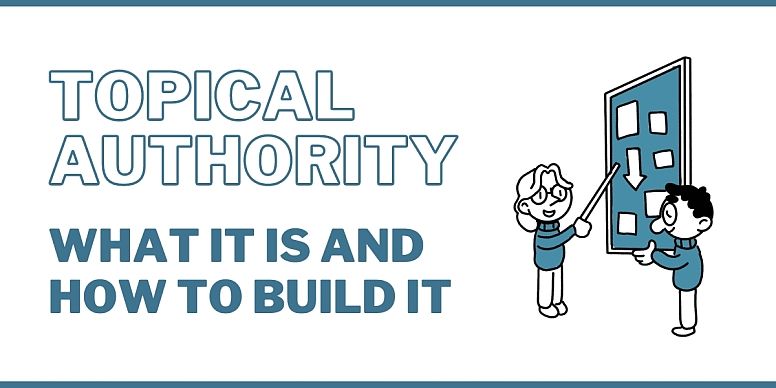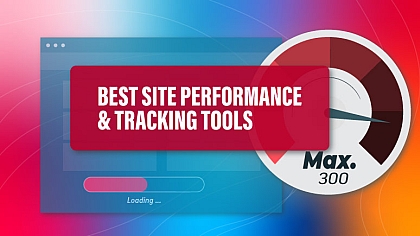
Content Strategy for E-E-A-T: Trustworthy Presence Building
E-E-A-T, or Experience, Expertise, Authority, and Trustworthiness, are the set of guidelines that Google has set for websites. Any website needs to showcase these qualities if it wants Google to rank them high in the SERPs. This is primarily done with the help of website content.

Let’s take a quick look at what each of the initials means. Experience refers to the author’s experience in the subject matter, i.e., how much work they have done in the field.
Expertise refers to the author’s credentials and knowledge that show they are an expert in their field. Authority refers to the author’s proven experience teaching and informing others in their field.
Finally, Trustworthiness refers to how much people are willing to trust your judgment. Trustworthiness is a product of the previous three points, so it will come as a by-product if you focus on the other parts of E-E-A-T guidelines.
Now, let’s see how you can use content to satisfy these guidelines and improve your online presence.
How to Create Content to Satisfy E-E-A-T Standards
Follow the given tips to satisfy E-E-A-T guidelines effectively.
Build an Online Portfolio to Showcase Experience and Expertise
An online portfolio that shows how much work you have done related to the topic/subject matter is great for showing off your experience and expertise.
Most people have a LinkedIn account that shows how much work they have done in their career. These LinkedIn profiles highlight previous jobs, passion projects, and even freelance work.
When you are writing content for a website, you can provide a portfolio by adding a webpage that has links to your relevant past projects. This builds the credibility of the author.
If you have written a lot of content for the same website, then it will also count as experience and expertise (although it will be somewhat less valuable).
Providing links is necessary because it allows Google crawlers to visit the websites behind the links and check your “experience” for themselves.
Naturally, creating a big portfolio will take some time, so you should be persistent and consistent in making authoritative content.
Write Well-Researched Content to Build Authority
To show authority, you have to create and publish content that educates those in your industry.

Now, industry experts are not like the common masses. They require evidence of all claims, and you need to exhibit critical thinking in your writing.
This can only be done if you are an expert at researching. Well-researched content that provides evidence to back up its points is the best for creating authority.
In web content, providing evidence is quite easy. All you have to do is link a paper or an article in your content, and it will be counted as a source. You don’t need to worry about creating citations in specific formats.
When writing content for a website, research will help you find new perspectives and information. With that, you will be able to inform other members of your industry and, therefore, build your authority.
Address Audeince Pain-Points and Concerns to Build Trust
Trust is a hard thing to build. You create trust when you meet the other party’s expectations.
How can you meet expectations in content? The simple answer is to find out what the expectations of a reader are. Typically, readers want the following things:
- Easy-to-understand content
- Content that answers the questions they have about the subject matter.
- Content that is easy to read
- Content without irrelevant details and misdirection
When you write content like this consistently, it gradually builds trust among your audience. Stick with it long enough, and your website will become a bastion of trust.
Some types of content are tailored to generate trust, for example, “How to” guides. A good guide with images, clear steps, and advice on dealing with possible hitches goes a long way in generating trust.
Similarly, if you are dealing with complex topics, an article that clearly explains the ins and outs of the topic so that its target audience clearly understands it will generate a lot of trust.
Google presumably has something called “TrustRank,” an algorithm that measures the trust of a website based on “hop distance” from a “seed” site. Seed sites are what Google deems as extremely authoritative. If such sites link to another, then they pass some authority to it. This raises the ‘trust’ of the linked site. To get links from seed sites, you just need to build your authority.
Avoid Writing Irrelevant Or Fluff Content as It Hurts Authority and Trust
It is no secret that Google favours long-form content when it comes to SERP rankings. However, not all topics require long-form content to be explained well.
Many topics can be covered in short-form articles. For example, listicle articles, tips & tricks articles, and news/updates articles can be easily covered in small blog posts.
Needlessly stretching them out for ranking purposes is putting the cart before the horse. It needs to be avoided like the plague.
Fluff content has the following drawbacks:
- It is not interesting.
- It increases the bounce rate of a webpage
- It reduces authority
- It reduces trust
- It results in a lower SERP ranking
To avoid these drawbacks, it is a great idea to write only as much content as you need to cover the topic. Pair that with some good formatting tricks like bullet points, clear headings, and images, and you will be set.
Another thing to be mindful of is to know your audience’s preferences. If you can’t write what they want to read, then it might as well be fluff. So, use tools and techniques like IP address location, cookies, and trackers to learn your audience’s preferences to avoid creating fluff content.
Leverage Your Company’s Expertise For its Content
One method of making your website authoritative is borrowing the authority behind your corporation. A website that has the same name as the company it belongs to will have a much easier path to the top of the SERPs compared to other new websites.
There are many ways of borrowing authority from your own company. Some of them are listed below.
- You can cite your employees as field experts
- You can use your business success as proof of experience and expertise
- You can use your existing customers’ testimonials to lend credibility to your site.
Google will check all of these things (if you make them available) and conclude that your website is authoritative.
From a content strategy perspective, it would be a great idea if some of your illustrated employees could author some informative posts on your website. As for customer testimonials, you can reach out to some of your clients and ask them to create some UGC (user-generated content)
In this way, you can make sure that your website ticks the E-E-A-T checkboxes.
So, there you have it, five points on how you can tackle various aspects of the E-E-A-T guidelines from a content strategy perspective. Google has been moving away from simple keyword-based ranking. It has been trying to put authoritative and useful content first. E-E-A-T is just one of its attempts at making that vision a reality.














